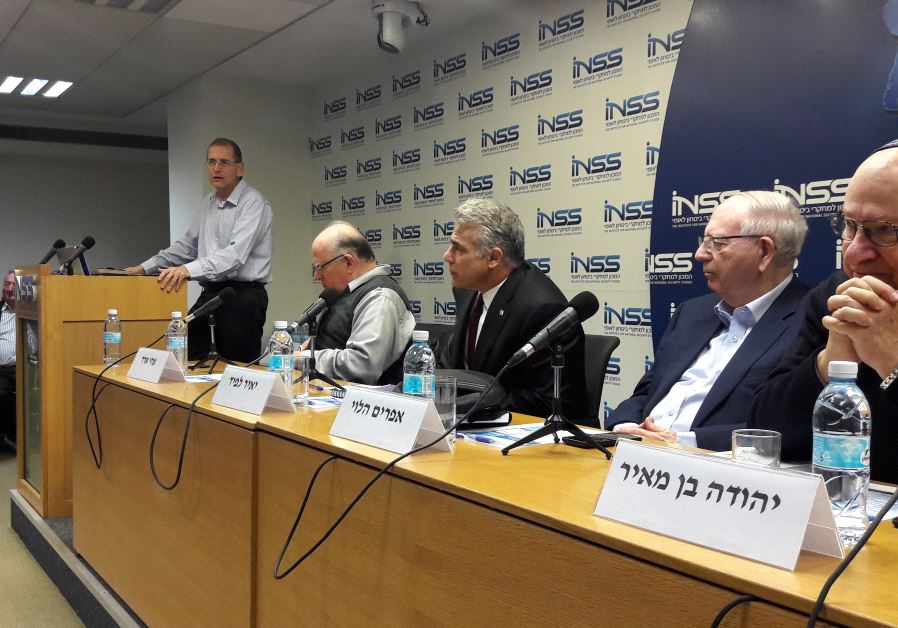Lapid: NSC doesn’t work, because Netanyahu doesn’t want it to work
What was undisputed among the panelists was that most prime ministers have underused the NSC and the security cabinet.
 Yair Lapid (third from left) at the INSS conference on Jan. 15, 2017(photo credit: YONAH JEREMY BOB)Updated:
Yair Lapid (third from left) at the INSS conference on Jan. 15, 2017(photo credit: YONAH JEREMY BOB)Updated: